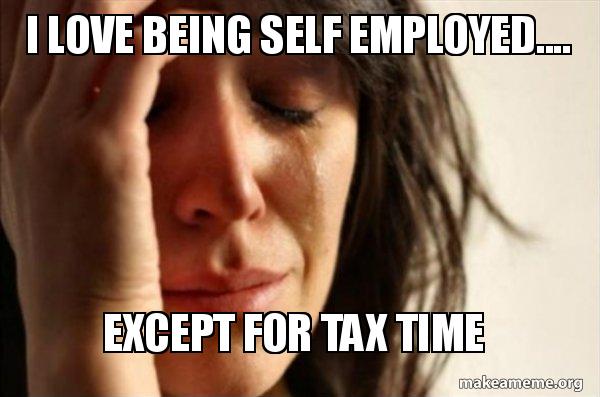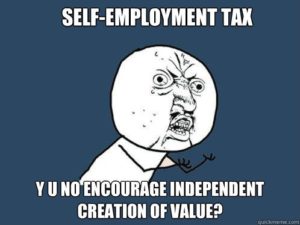
Why The UK Government’s Attack On The Self-Employed Is Counterproductive
In July 2016, the Office for National Statistics (ONS) reported that “the level of self-employment in the UK increased from 3.8 million in 2008 to 4.6 million in 2015”. It concluded that “this strong performance is among the defining characteristics of the UK’s economic recovery”. Self-employment now also accounts for 43 % of the overall increase in employment since 2008.
A changing landscape for working practices
Over 15% of the UK’s labour force is now self-employed. With improvements in technology, the benefits of flexible working, rising costs and issues with public transport and increasing house price inflation (particularly in the big cities), it’s a sector that is going to continue to grow.
A significant contribution to our economy
In addition to being one of the “defining characteristics of the UK’s economic recovery”, a study by the RSA in 2015, found that microbusinesses, including sole traders, help to spur productivity, innovation and economic growth.
Whilst not perhaps investing heavily in R&D, they perform well in conceptual innovation, consumer experiences and design. They also contribute to job creation and produce one of the “most satisfied groups in the labour market. They score particularly high on measures of autonomy, involvement in decision-making, loyalty to the organisation and relations with management.”
With Brexit on the horizon and a new era of uncertainty for the UK economy, the Huffington Post recently concluded that it is likely to be the self-employed that keep the economy afloat in the “stormy waters ahead”.
The challenges of being self employed
No one disputes that being self-employed comes with many advantages. Indeed, the ONS report concludes that “self-employed workers are broadly content with their labour market status”. However, self-employment also comes with some significant challenges.
For a start, you don’t enjoy the advantages that come with employment such as company pensions with employer contributions, employee benefit packages, sick pay and paid holiday entitlement, training and professional development and administrative, sales and marketing support teams.
Then there’s the discrepancy in maternity or paternity pay. At present, self-employed women are only eligible for maternity allowance, which is typically less than statutory maternity pay (SMP). There is no discernible reason for this disparity
When you’re self-employed you will also have more difficulty getting a mortgage, saving for your future or just surviving the peaks, troughs and late payments associated with working for yourself. But you still have to strive to put yourself on a level playing field with those larger competitors and be prepared to take quite a high degree of financial and professional risk. To manage all the additional demands on your time, throw in long working hours too.
A younger generation without much choice
Although the general trend of the self-employed population has moved towards a slightly older demographic, there is still a significant proportion of younger, part-time self-employed men. The picture for them poses even more of a challenge, as many “display a greater degree of dissatisfaction with their part-time status and appear to have come directly from unemployment – possibly indicating a choice made under economic hardship” (ONS). In short, they’re not there out of choice. They also face another of the biggest challenges of this century: finding and funding a home.
The financial dilemma
It’s clear the increase in self-employment marks a change in the UK workforce and working practices but with the increase, comes a sizeable fiscal shortfall.
Whilst the ONS report stresses the contribution self-employment has made to our economy, the OBR has predicted that this rising trend will significantly reduce overall income tax and National Insurance Contributions (NICs) receipts. As he delivered the recent Budget, Philip Hammond also explained:
“The lower National Insurance paid by the self-employed is forecast to cost our public finances over £5 billion this year alone. That is not fair to the 85% of workers who are employees.”
Cue the government’s recent failed attempt to increase the NICs of the self-employed. The argument being that the current discrepancy (where the self-employed pay 9% of earnings above the threshold vs. 12% for conventional employees) can no longer be justified and also creates an incentive for bogus self-employment, which in turn deprives workers of rights.
Whilst the government may claim that they’re trying to establish a fair regime, it appears to have forgotten the many other inequalities. What’s more, with the alternative of operating as a sole trader being to set up as a small limited company, the government has yet again hit company owners by cutting the tax-free allowance on dividends from £5,000 to £2,000 (the £5,000 tax-free allowance was only introduced in April 2016 and seen by many as a trade-off for tax rates on dividends being raised).

Tax – a barrier to growth
An independent Self-Employment Review carried out by Julie Dean OBE and published early in 2016 found:
“…taxation was repeatedly raised by all of those interviewed – as an administrative burden, a barrier to growth, and an issue that could benefit from improved simplicity and better advice. Given the scale of concern I recommend that Government looks at this in more detail.”
Julie Dean went on to conclude “Choosing to be self-employed should not mean that people are disadvantaged in the support that they receive from Government. It is important that with the increased growth in self-employment, and the subsequent benefits that this group brings to the economy, that there are systems in place to support the self-employed in the same way as the employed. Government should consider extending support to the self-employed in areas where there is discrepancy between support for the self-employed and support for employees”.
Is taxing the self-employed now counterproductive?
And yet, the existing complexities of the tax system remain and attempts to raid the pockets of the self-employed continue. What’s more, the government’s Making Tax Digital for Business (MTDFB) initiative presents yet another challenge for the self-employed. Under MTDFB, they’ll now need to use software or apps to keep their business records, and to update HMRC quarterly, adding both a major administrative burden and additional cost to their bookkeeping accounting practices that will significantly hamper the ability of the self-employed to earn a living let alone to grow their businesses.
So, whilst the government may have backed down on the NICs issue, the episode has left a nasty taste in the mouths of many in this sector. Are further raids planned? And if so, surely to do so is going to become counterproductive and very possibly damaging to the UK economy as the small self-employed entrepreneur is driven back to employment, or even unemployment.
